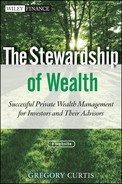Chapter 15
Investing in Hedge Funds
Buying stocks long is to selling stocks short what touch football is to Iwo Jima.
—Dave Barry (paraphrase)
Because most taxable investors have a strong capital preservation orientation, and because many hedge funds also have a capital preservation aspect to their activities, it is hardly surprising that hedge fund investing has proven to be extremely popular among affluent families. In the past 20 years, hedge fund investing has gone from a fringe activity practiced by obscure gnomes to the most rapidly growing of all investment opportunities.1
Today, there are at least 8,000 hedge funds in existence, and probably more than 10,000. Note that this is far more than the number of stocks listed on the New York Stock Exchange. In an average year, hedge fund managers generate more income than all the mutual funds registered in the United States. Indeed, what used to be exclusively the province of wealthy and institutional investors is now hot retail territory. “Retail” hedge funds of funds offered by large financial institutions and requiring very low minimum investments are sprouting everywhere, and there are also mutual funds that invest in hedge funds or that attempt to replicate hedge fund strategies.
Why are hedge funds so hot? Partly, of course, it's the mystique that surrounds hedge funds. They are exclusive, nontransparent, and engage in exotic kinds of investment strategies. Families who invest in hedge funds feel that they are somehow special, that they have gained access to an esoteric sector where wonderful things can happen.
This is mainly nonsense, but there are in fact good reasons to consider investing in hedge. One important reason is that, at least among the best managers, hedge funds have produced very good risk-adjusted performance over long periods of time. Exhibiting roughly bondlike price volatility, the best hedge funds have nonetheless produced equitylike returns, a feat that seems to fly in the face of modern portfolio theory. In addition, although hedge funds performed poorly in the dreadful market of 2008, declining about 20 percent, long equities declined more than twice as much.
As a result, although most people still think of hedge funds as an alternative investment, the category has become very much mainstream. It is a rare wealthy family these days that doesn't maintain a healthy allocation to hedge.
